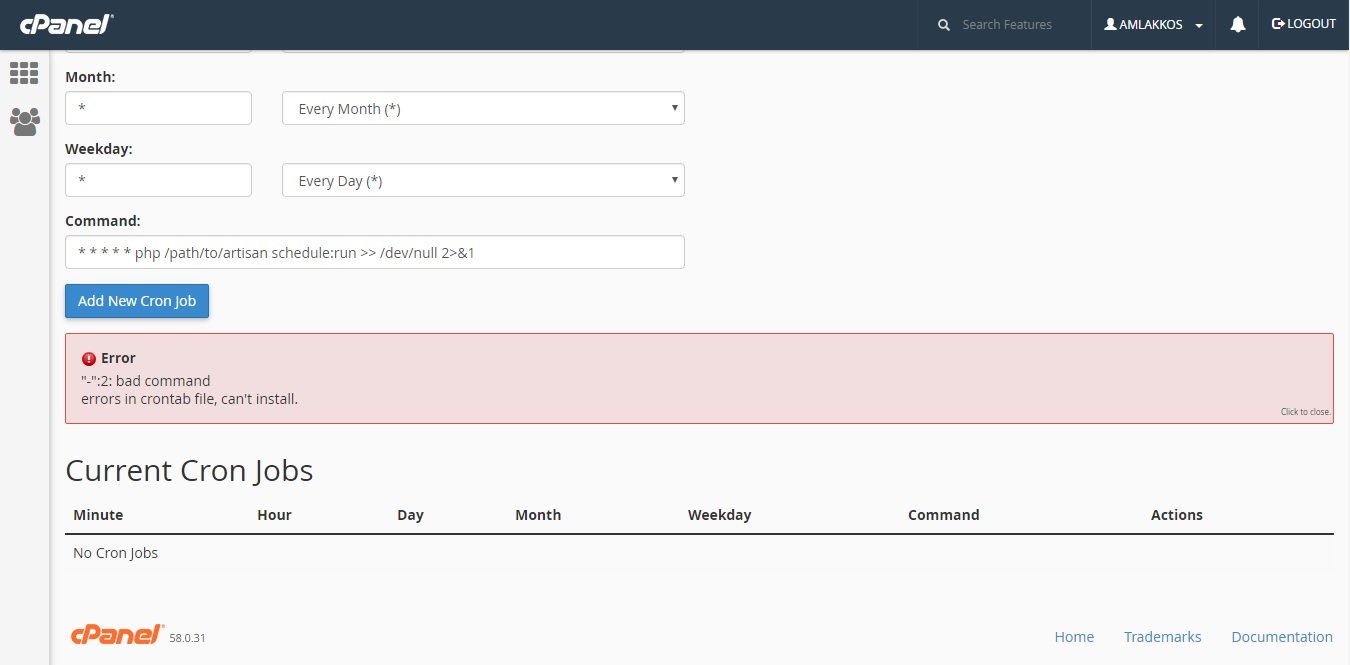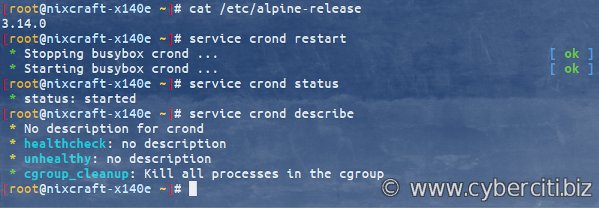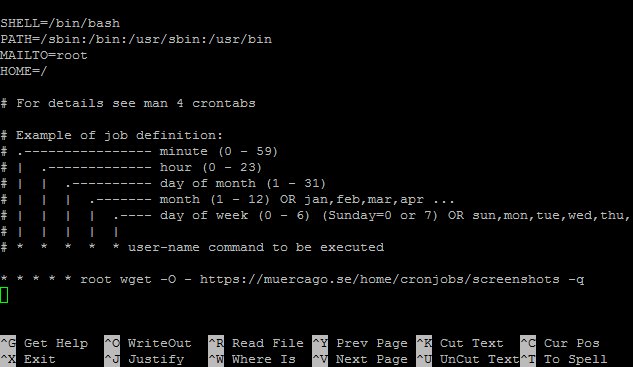Looking for a way to automate tasks on your server at regular intervals? Look no further! One solution to this is using a cron job. And if you need a cron job every hour, you’re in the right place. In this article, we’ll explore how you can set up a cron job to run every hour and simplify your workflow. So, let’s dive in and see how you can achieve this without any hassle.
Cron Job Every Hour: Automate Your Tasks with Precision
Cron jobs are a powerful tool in the world of automation. They allow you to schedule tasks to run at specific intervals, freeing up your time and ensuring that important functions are executed seamlessly. Whether you’re a developer, system administrator, or someone who wants to simplify repetitive tasks, understanding how to set up a cron job every hour can greatly enhance your productivity. In this article, we’ll delve into the intricacies of cron jobs running on an hourly basis, exploring the benefits, the syntax, and the practical applications. So let’s dive in and unlock the potential of automating your tasks!
What is a Cron Job?
A cron job is a time-based job scheduler in Unix-like operating systems. It allows you to schedule recurring tasks at specific time intervals, such as daily, weekly, or monthly. Cron jobs are incredibly versatile and can be used for a wide range of purposes, including running scripts, executing commands, sending emails, performing backups, and more. They are an integral part of any system administrator’s toolbox and a valuable asset for developers seeking automation.
The Syntax of a Cron Job
Before we explore how to set up a cron job to run every hour, let’s take a closer look at the syntax of a cron job entry. Each cron job entry consists of six fields separated by spaces, representing the minute, hour, day of the month, month, day of the week, and the command to be executed.
Here’s the general format of a cron job entry:
“`
* * * * * command-to-be-executed
“`
Let’s break down each field:
– Minute: This field represents the minute when the command should be executed, ranging from 0 to 59.
– Hour: This field represents the hour when the command should be executed, ranging from 0 to 23.
– Day of the month: This field represents the day of the month when the command should be executed, ranging from 1 to 31.
– Month: This field represents the month when the command should be executed, ranging from 1 to 12 or using three-letter abbreviations (e.g., Jan, Feb, Mar).
– Day of the week: This field represents the day of the week when the command should be executed, ranging from 0 to 7 (both 0 and 7 represent Sunday) or using three-letter abbreviations (e.g., Sun, Mon, Tue).
– Command to be executed: This field contains the command or script that will be executed at the specified time.
To set up a cron job to run every hour, you need to use the `*` wildcard in the hour field. Let’s see how it looks:
“`
0 * * * * command-to-be-executed
“`
In the example above, the cron job will run at the first minute of every hour.
Practical Applications of a Cron Job Every Hour
Now that we understand the syntax, let’s explore some practical applications of setting up a cron job to run every hour. The ability to automate tasks on an hourly basis can significantly streamline your workflow and improve overall efficiency. Here are a few scenarios where a cron job running every hour can be immensely beneficial:
Generating Regular Reports
Many businesses rely on generating reports to monitor their operations and make informed decisions. By setting up a cron job to run an automated script or command every hour, you can effortlessly generate up-to-date reports and have them ready for analysis. This eliminates the need for manual intervention and ensures that the reports are always timely and accurate.
Performing Data Backups
Data loss can be catastrophic for any organization. Regularly backing up critical data is crucial to protect against such risks. With a cron job running every hour, you can automate the process of backing up important files or databases. This ensures that your data is continuously safeguarded with minimal effort on your part.
Monitoring System Health
System administrators often need to monitor the health of their systems to ensure they’re running optimally. By scheduling scripts or commands to run every hour, you can automate the monitoring of system metrics, such as CPU usage, memory utilization, disk space, and network performance. This proactive approach allows you to identify and address potential issues before they become critical.
Updating Content on Websites
For websites that frequently update their content, setting up a cron job to run every hour can simplify the process. You can automate the retrieval or generation of new content and ensure that it’s promptly published on your site. This is particularly useful for news portals, blogs, or any website that needs to display the most recent information to its visitors.
Syncing Data Across Platforms
In today’s interconnected world, syncing data across multiple platforms is often necessary. By scheduling cron jobs to run every hour, you can automate the synchronization process, ensuring that your data remains consistent and up to date. Whether you’re syncing files between servers, updating records in a database, or transferring data between different applications, cron jobs provide an efficient solution.
Tips for Setting Up a Cron Job Every Hour
To make the most of your cron job running every hour, consider the following tips when setting it up:
1. Use Absolute Paths
When specifying the command or script to be executed, it’s essential to use absolute file paths. Cron jobs don’t have the same context as interactive shell sessions, so relative paths may not work as expected. Using absolute paths ensures that the cron job can locate and execute the desired command or script accurately.
2. Redirect Output
Cron jobs run in the background and don’t have an interactive environment like a shell session. Therefore, any output generated by the command or script will not be visible unless explicitly redirected. To capture the output and any error messages, redirect them to a file by appending `>> /path/to/logfile 2>&1` to your cron job entry. This allows you to review the output and troubleshoot any issues that arise.
3. Set Environment Variables
Cron jobs may not have the same environment variables as your shell session. If your command or script relies on specific environment variables, it’s crucial to set them explicitly within the cron job entry. You can do this by prefixing your cron job with the desired environment variables, for example:
“`
PATH=/usr/local/sbin:/usr/local/bin:/usr/sbin:/usr/bin:/sbin:/bin
SHELL=/bin/bash
0 * * * * command-to-be-executed
“`
By explicitly setting the `PATH` and `SHELL` variables in the above example, you ensure that the cron job has the correct environment for successful execution.
4. Test and Verify
Before relying on a cron job to run every hour in a production environment, it’s essential to test and verify its functionality. Create a test cron job that runs every minute or every five minutes, and confirm that it executes as expected. This allows you to identify any issues or unexpected behavior before implementing the final hourly cron job.
Automating tasks using cron jobs is a game-changer when it comes to productivity and efficiency. By setting up a cron job to run every hour, you can streamline your workflow, reduce manual intervention, and ensure that critical tasks are executed with precision. From generating reports and performing backups to monitoring system health and updating website content, the possibilities are endless. With the syntax and tips provided in this article, you’re now equipped to harness the power of cron jobs and take your automation efforts to the next level. So go ahead, unleash the potential of automating tasks every hour with cron jobs and experience the benefits firsthand.
How to schedule a Cron Job to run a script on Ubuntu 16.04
Frequently Asked Questions
How can I set up a cron job to run every hour?
To set up a cron job that runs every hour, you can use the following syntax in your crontab file:
0 * * * * /path/to/command
This will run the specified command or script at minute 0 of every hour. Make sure to replace /path/to/command with the actual path to your desired command or script.
Can I specify a specific range of hours for my cron job to run every hour?
Yes, you can specify a range of hours for your cron job to run. To do this, modify the hour field in your crontab entry. For example, if you want the job to run every hour between 9 AM and 5 PM, you can use the following syntax:
0 9-17 * * * /path/to/command
This will run the specified command or script at minute 0 of every hour between 9 AM and 5 PM.
Is it possible to run a cron job every hour during specific days of the week only?
Yes, you can schedule a cron job to run every hour on specific days of the week. To do this, modify both the hour and the day of the week fields in your crontab entry. For example, if you want the job to run every hour on Mondays and Thursdays, you can use the following syntax:
0 * * * 1,4 /path/to/command
This will run the specified command or script at minute 0 of every hour on Mondays and Thursdays.
How can I view the list of all my existing cron jobs?
To view the list of all your existing cron jobs, you can use the following command:
crontab -l
This will display the contents of your crontab file, which contains the scheduled cron jobs for your user.
Can I edit an existing cron job to make it run every hour?
Yes, you can edit an existing cron job to make it run every hour. To do this, you need to modify the hour field in your crontab entry. Simply locate the specific cron job in your crontab file using the crontab -l command, and then edit the corresponding line to set the desired hour.
For example, if the cron job is currently scheduled to run at 12 PM every day, and you want it to run every hour instead, you can change the hour field from 0 12 * * * to 0 * * * *.
Final Thoughts
A cron job every hour can significantly enhance productivity and automate various tasks. By scheduling regular jobs, such as backups or updates, businesses can ensure a smooth and efficient operation without manual intervention. With the ability to set precise intervals, a cron job every hour offers unparalleled flexibility and control. Whether it’s sending regular reports or running system maintenance tasks, this powerful feature saves time and effort. Implementing a cron job every hour allows businesses to streamline their processes and focus on more important aspects of their operations.




